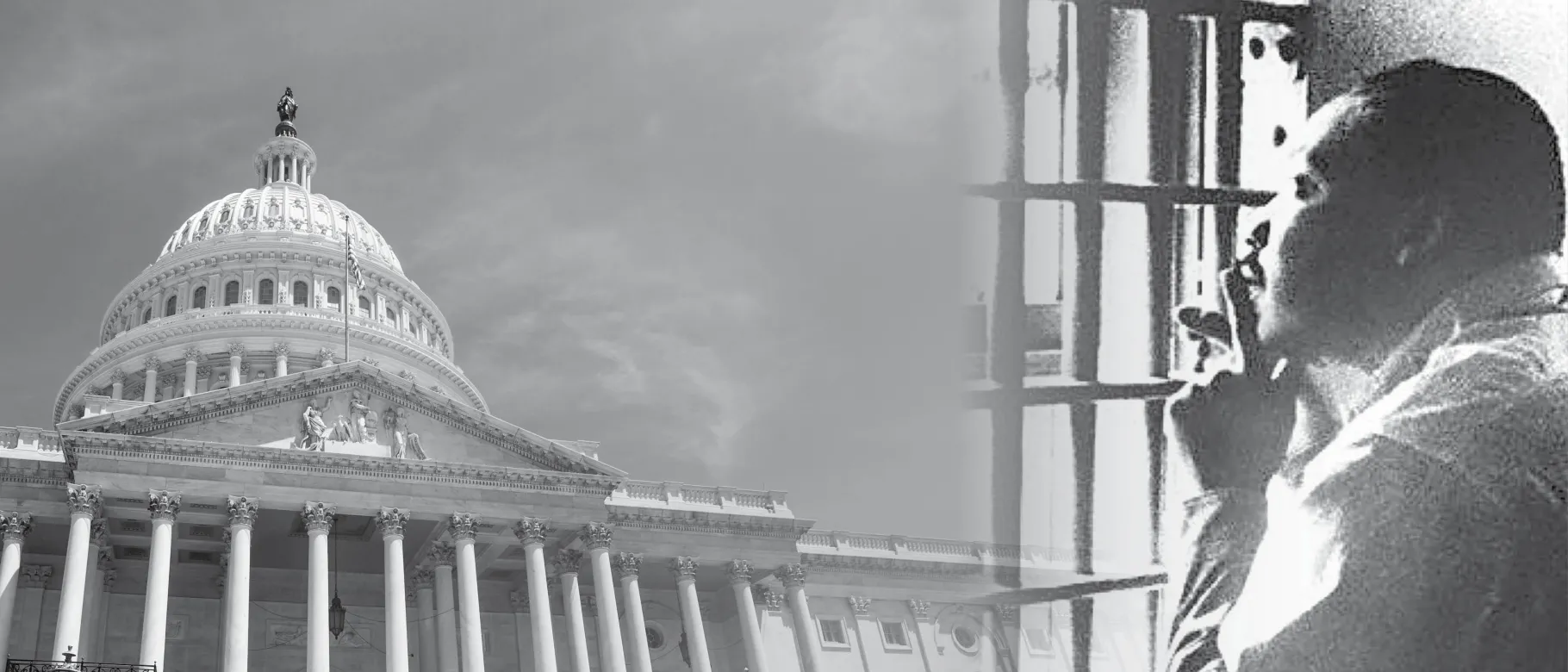Living King’s Dreams or His Nightmares

The following essay was written by UNE Associate Provost for Community, Equity, and Diversity, Chris Hunt, Ed.D., and distributed to the UNE Community to recognize Martin Luther King Jr. Day 2021. A version of the piece was published by the Portland Press Herald.
I have known since October that I would write an essay about Reverend Dr. Martin Luther King, Jr. on his dreams and nightmares. Specifically, I was going to take excerpts of his 1963 “I Have a Dream” speech and the NBC News interview he gave in 1967 at his Ebenezer Baptist Church, 11 months before he was killed at age 39, and provide commentary about where we are today.
But did I know then that in January a 51-year-old Black man, who is the pastor of King’s church, would be elected to the United States Senate to represent Georgia? No. Was it clear to me that he would serve in the Senate with a 33-year-old Jewish man also elected less than two weeks ago? It was not. Dreams fulfilled? Possibly.
Could anyone, including Dr. King, have dreamt that the U.S. Capitol would be overtaken by, as the U.S. Army called them, domestic terrorists? Nightmare? Definitely.
These are the two sides of Dr. King’s vision, the yin and yang of dreams and nightmares. In America, the fulfillment of Dr. King’s dream has always meant struggling to outpace recurring nightmares. Dr. King asserted that “there has never been a single solid, determined commitment of large segments of White America on the whole question of racial equality. Vacillation has always existed. Ambivalence has always existed since the founding of our nation.” He went on to suggest that support for the Civil Rights Movement came largely from White Americans’ temporary response to the brutal treatment of Black people under the direction of officials like Police Commissioner Bull Connor or Sheriff Jim Clark. The dream gains ground on the nightmare, but only temporarily, in the aftermath of some instance of undeniable horror.
One such horror occurred on Memorial Day 2020 when a 46-year-old Black man, George Floyd, was murdered by a police officer in Minneapolis. We can recall the outrage that ensued across America and around the world at racial injustice. And, while that particular killing of an unarmed Black man was an affront to the sensibilities of Americans, the question is unavoidable: Will that “moment” be similar to the temporary support Dr. King spoke about regarding the Civil Rights Movement? Was the outrage this past summer merely a reaction to the sickening video-documented brutality of Mr. Floyd’s murder and not really about creating lasting racial equality and breaking down systemic oppression?
Reverend Dr. Raphael Warnock, who earned his doctoral degree in theology, is now the pastor of Ebenezer. Jon Ossoff is an investigative journalist and mentee of the late Congressman John Lewis, who also attended Ebenezer. They will begin serving together in the Senate later this month. We have to ask ourselves if Dr. King would feel his dreams of racial equality have come to fruition now that a Black man and a Jewish man will serve the state of Georgia. Afterall, it was just one state over, in Mississippi, where two Jewish social justice activists, Andrew Goodman and Michael Schwerner, and a Black man, James Chaney, were kidnapped and murdered in 1964 by white supremacists—where brutality was in full display once again.
On the morning of January 6th, perhaps the dream gained more ground on the nightmare when Warnock and Ossoff were elected to the U.S. Senate. But once again, it was temporary; the nightmare prevailed later in the day. As Americans were outraged and even terrorized by ghastly scenes of the U.S. Capitol violently occupied for the first time since the British invasion during the War of 1812, were they equally outraged by the lack of coordinated security presence—in dramatic contrast to the extensive and aggressive security detail when Black, White, Latino, and many other people came together to support Black lives after the murder of Mr. Floyd?
Dr. King said America was content at achieving decency but had no intention of going as far as true equality. Going further, Dr. King stated, “...the Negro was brought here in chains; treated in a very inhuman fashion. This led to the ‘thingification’ of the Negro. So he was not looked upon as a person.” Was the othering or “thingification” of Black people the reason for such stark differences in the security preparations between the protesters for Black lives as opposed to the insurrection on January 6th? Unfortunately, it’s doubtful that most Americans will agree that racial injustice, which was Dr. King’s nightmare, could possibly be the major theme that anchored the U.S. Capitol invasion.
As the associate provost for Community, Equity, and Diversity, part of my role is to facilitate difficult conversations and ask thoughtful and uncomfortable questions in the pursuit of knowledge and a more just society. With that in mind, I’ll say that only time will tell whether Mr. Floyd’s murder, or a countless number of other similar killings, will have a lasting impact on King’s dream of racial equality. Temporary reaction to brutality was his concern then and should be our concern now.